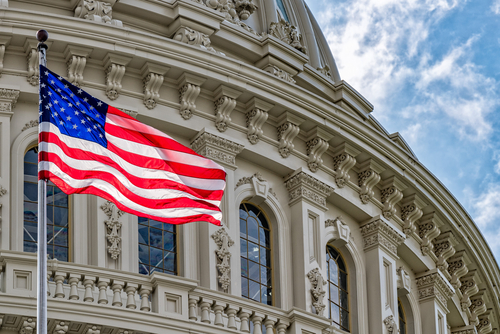
On the eve of the 18th anniversary of the 9/11 attacks, experts testified to U.S. Congress that while Islamic jihadists remain a threat to the security of the United States, so to do domestic terrorists in the form of white supremacists and other radical right-wing groups.
During a House Homeland Security Committee hearing on global terrorism on Tuesday, witnesses stated that Americans were more likely to die at the hands of an American with a gun than at the hands of an international terrorist.
And while the threat posed by such groups as al-Qaida, ISIS and the Taliban remain, the groups do not pose as much of a threat as domestic terrorists. Peter Bergen, vice president of Global Studies with New America, said that while 104 Americans had been killed by Jihadists since 2002, 109 Americans had been killed by “right-wing terrorists.” Further, he said, none of the Jihadists were foreign terrorists coming to the United States to inflict damage on Americans.
“Every lethal attack carried out on the U.S. by Jihadist terrorists since 9/11 has been carried out by a U.S. resident,” Bergen said. “These groups, their reach is entirely electronic and they are able to achieve domestic radicalization through the use of the internet and other means.”
Ali Soufan, national security and counterterrorism expert and member of the Homeland Security Advisory Council, said he sees the rise of radical right-wing groups in the same light as he did al-Qaida.
“The reason I am sitting here today is that in the ‘80s and ‘90s, I saw that evolving threat of al-Qaida, and we said, you need to pay attention to this,” Soufan said. “And today, we’re seeing that same thing in the U.S. and Western European countries … they are today where the jihadists were in the ‘90s.”
Panel members said Congress should identify domestic terrorist organizations to enable law enforcement officials to track the groups’ members better. Additionally, they also suggested officials identify international white supremacist groups that are working with individuals and small groups in the United States in order to better track their movements.
U.S. Rep. Michael McCaul (R-TX) proposed that Congress create a counter domestic terrorism group within the FBI to track domestic terror groups in much the same way the National Counterterrorism Center tracks external threats.
The panel said that Islamic groups also were still a threat to the United States and should continue to be watched.
After 18 years and a reported price tag of $5 or $6 trillion, there are now more terrorists than before 9/11, Soufan said. “What we’re doing globally is not working. What we’re doing nationally is working to keep terrorists out of the United States. But what we’re doing is just a Band-Aid solution.”
Committee Chairman Bennie G. Thompson (D-MS) Thompson, in his opening remarks, said his legislation, the Domestic Terrorism DATA Act, was reported by the Committee by voice vote. The bill would require the government to publish an annual public report outlining domestic terrorist incidents and what the government is doing to address them. It would also require the Department of Homeland Security to research how domestic terrorists are linked with transnational terrorist movements, including white supremacist movements, he explained.
In the midst of the hearing, Thompson announced President Donald Trump’s tweet that he had fired National Security Advisor John Bolton. The panelists expressed their concern over Bolton’s exit from the administration.
“It’s concerning, and it’s a disincentive for anyone who wants to serve their country,” said Thomas Joscelyn, a senior fellow with the Foundation for the Defense of Democracies. “This constant turnover in national security directors is troubling. This will be our fourth one during Trump’s term. It’s concerning.”
Meanwhile, Brian Levin, director of the Center for the Study of Hate & Extremism at California State University, said a first step toward ridding the country of the threat from white supremacist groups should start with taking assault weapons off the streets.
“I’m a former NYPD. I’m a gun owner,” he said. “But you know what? I don’t want unstable lunatics or ideological extremists to have access to these weapons of war.”
Members of the subcommittee also criticized the absence of the secretary of Homeland Security, the director of the FBI and the director of the National Counterterrorism Center from the hearing, an absence Thompson noted in his opening remarks. Thompson said the three were invited in July by both himself and the ranking member to testify, but they declined.
All three of the security officials said they would be available Oct. 30. No confirmation of another hearing on that date was given.




